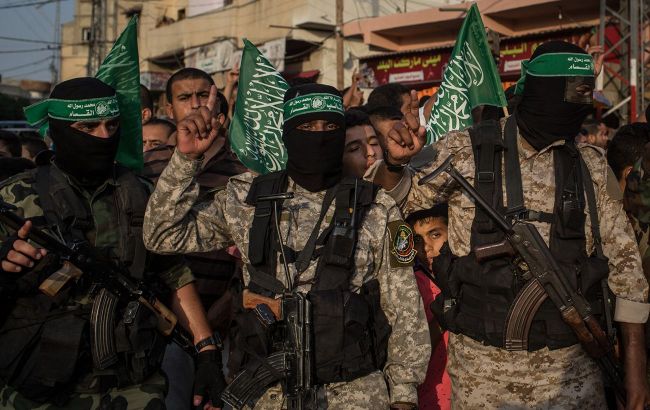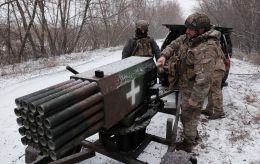Hamas leaders delay ceasefire talks in Gaza Strip - WSJ
 Photo: Hamas leaders argue over new cease-fire deal with Israel (Getty Images)
Photo: Hamas leaders argue over new cease-fire deal with Israel (Getty Images)
The agreement between Israel and Hamas on a ceasefire and a hostage exchange is being delayed due to disputes within the leadership of the Palestinian movement, according to The Wall Street Journal.
It is noted that the leader of Hamas, Yahya Sinwar, and other leaders of the organization allegedly are willing and want to sign the proposal for a six-week ceasefire in the Gaza Strip in exchange for the release of Israeli hostages.
However, the political leaders of the organization in exile demand greater concessions and insist on engaging in negotiations for a permanent ceasefire.
Ceasefire agreement between Israel and Hamas
On February 1, the Ministry of Foreign Affairs of Qatar announced that Hamas had given its preliminary consent for a ceasefire and an agreement on the release of hostages. The day before, U.S. National Security Advisor Jake Sullivan and Israel's Minister of Strategic Affairs Ron Dermer discussed the deal, which would allow the release of 136 hostages.
According to reports, the agreement involves the release of civilian hostages initially captured on October 7, 2023, followed by Israeli soldiers and the return of the bodies of deceased hostages.
It is expected that Israel will also release Palestinian prisoners, including members of the security services, as in the previous agreement. However, this time, it is anticipated that their number will be larger and may include terrorists "with blood on their hands." The ceasefire is expected to last much longer than the previous weekly pause.
Meanwhile, UK Foreign Secretary David Cameron has proposed his own long-term peace plan for a ceasefire and achieving peace. The plan suggests that Hamas leaders, including Yahya Sinwar, relocate from the Gaza Strip to another country.
It is worth noting that in November, as a result of hostage exchange negotiations, Hamas militants released around 120 individuals, and Israel freed a group of Palestinian detainees. However, hostilities resumed in the region shortly afterward.
Subsequently, the Israel Defense Forces initiated a new major offensive in the western part of Khan Younis in the southern Gaza Strip. The operation is accompanied by extensive military actions.

